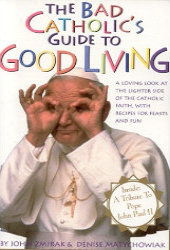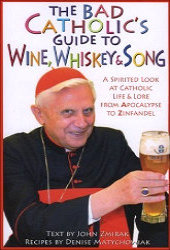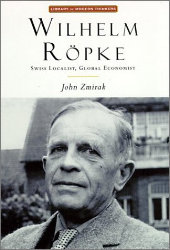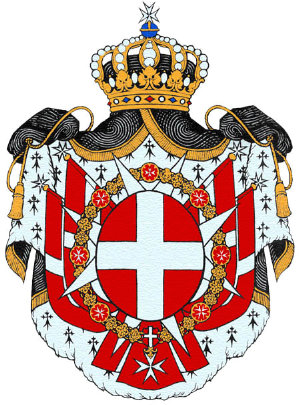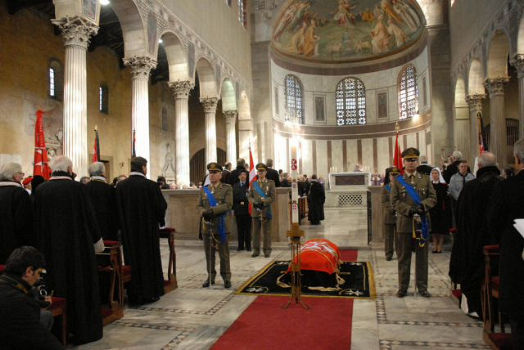Church
About Andrew Cusack
 Writer, web designer, etc.; born in New York; educated in Argentina, Scotland, and South Africa; now based in London.
Writer, web designer, etc.; born in New York; educated in Argentina, Scotland, and South Africa; now based in London. read more
News
Blogs
Reviews & Periodicals
Arts & Design
World
France
Mitteleuropa
Knickerbockers
Argentina
The Levant
Africa
Cape of Good Hope
Netherlands
Scandinavia
Québec
India
Muscovy
Germany
Academica
Norn Iron Unites

What issue could be so important that it unites Northern Ireland’s four main political parties? The leaders of the Democratic Unionist Party, Sinn Féin, the Social Democratic & Labour Party, and the Ulster Unionist Party (to name the parties, from largest to smallest in number of votes) have written to Westminster MPs urging them to oppose the extension of the 1967 Abortion Act to Northern Ireland. Northern Ireland was exempt from the Act legalizing abortion in Great Britain because at the time it had its own parliament handling regional issues. The six Irish counties that have remained in the Union are the most strongly anti-abortion part of the United Kingdom.
The Other Modern
An Architecture of Continuity:
Luis Moya Blanco’s Universidad Laboral de Gijón
In 1944, an undersecretary of Francoist Spain’s Ministry of Labour visited the city of Gijón to attend the funerals of a group of miners killed in a mine collapse. After the solemn rites took place, Turiño Carlos Pinilla met with a group of locals filled with concern for the offspring of the dead workers. All they asked of the bureaucrat was an orphanage; what they ended up with ten years later was a magnificent palace of charity, almost a city unto itself and the largest building in Spain: the Universidad Laboral de Gijón.
An example of Catholic social teaching (which upholds the essential dignity of work and the working man), the “labor university” was founded as a secondary-level institution to teach vocational and technical skills to the children of Spain’s working class. At over 2,900,000 sq. ft. of space, it is more than double the size of the great Royal Monastery and Palace of El Escorial built by Phillip II in the sixteenth century, and was accompanied by over 380 acres of farmland.
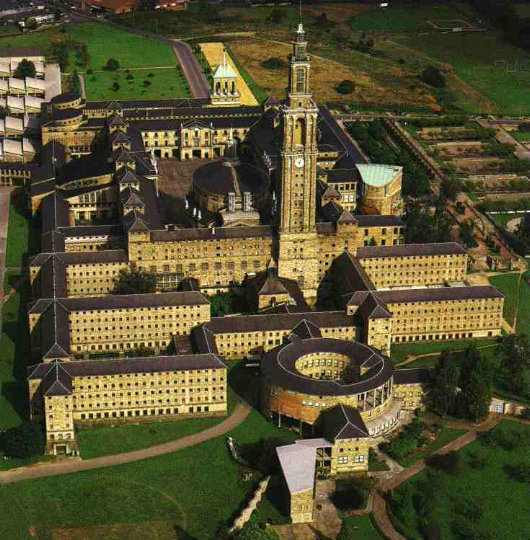
The goal was to accommodate 1,000 students (eventually doubling) from the age of 12 to 16, with residences, school facilities, industrial workshops, working farmland, athletic facilities, and sporting fields. The educational aspect and leadership of the Laboral was entrusted to the Jesuits, while the Poor Clares also had a convent on the premises, performing various household tasks and caring for the girls as their particular charism. (more…)
Philipp Freiherr von Boeselager, 1917-2008
Catholic Nobleman, Forester, Knight of Malta, Plotted to Kill Hitler
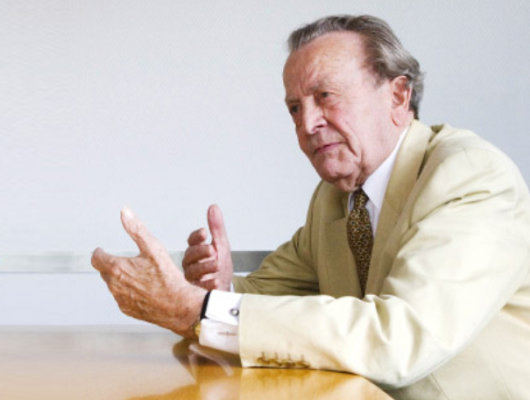
Philipp Freiherr (Baron) von Boeselager, the last surviving member of the conspiracy of anti-Nazi German officers, has died at 90 years of age. The freiherr‘s background and upbringing were distinctly Catholic. The Boeselagers are a Rhenish family with Saxon origins in Magdeburg. Philipp was the fourth of eight children and was educated by the Jesuits at Bad Godesborg. His grandfather had been officially censured by the Imperial German goverment for publically taking part in a Catholic religious procession.
Boeselager had most intimately been involved in the March 1943 plot to assasinate Hitler and Himmler when the the Fuhrer and the SS head were visiting Field Marshal Günther von Kluge on the Eastern Front. Boeselager, then a 25-year-old cavalry lieutenant under the Field Marshal’s command, was to shoot both Hitler and Himmler in the officers mess with a Walther PP. Himmler, however, neglected to accompany Hitler and so the Field Marshal ordered Boeselager to abort the attempt fearing that Himmler would take over in the event of Hitler’s death, changing nothing.
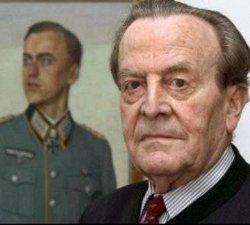 «Each day Hitler ruled, thousands died unnecessarily — soldiers, because of his stupid leadership decisions. And later, I learned of concentration camps, where Jews, Poles, Russians — human beings — were being killed.»
«Each day Hitler ruled, thousands died unnecessarily — soldiers, because of his stupid leadership decisions. And later, I learned of concentration camps, where Jews, Poles, Russians — human beings — were being killed.»
«It was clear that these orders came from the top: I realised I lived in a criminal state. It was horrible. We wanted to end the war and free the concentration camps.»
Boeselager later procured the explosives for the famous July 1944 plot (the subject of the upcoming film “Valkyrie“), under the cover of being part of an explosives research team. He handed a suitcase with the explosives on to another conspirator. When the bomb exploded in Hitler’s conference room, Boeselager and his 1,000-man cavalry unit made an astonishing 120-mile retreat in under 36 hours to reach an airfield in western Russia from where the aristocrat would fly to Berlin to join the other conspirators.
At the airfield, however, he received a message from his brother (Georg von Boeselager, a fellow cavalry officer who was repeatedly awarded for his consistent bravery on the battlefield) saying “All back into the old holes”, the code signifying the failure of the coup. Even more astonishingly than his swift retreat was his return, with his unit, to the front quickly enough not to raise any eyebrows. As a result, he was not known to be part of the conspiracy and escaped the gruesome tortures and executions dealt to many of his fellow conspirators.
After the war, his role in the plot was revealed and Philipp von Boeselager was awarded the Legion d’honneur by France and the Great Cross of Merit by West Germany. He joined the Order of Malta in 1946, eventually co-founding Malteser Hilfdienst, the medical operation of the German knights of the Order, and helping coordinate German pilgrimages to Lourdes.
The greater part of his post-war years was spent in forestry, and Boeselager served as head of the Arbeitsgemeinschaft Deutscher Waldbesitzerverbände (the coordinating body of private and cooperative forest-owners) from 1968 to 1988. Coincidentally, he was succeeded in that post by Franz Ludwig Schenk Count von Stauffenberg, the son of the July ’44 plot mastermind.
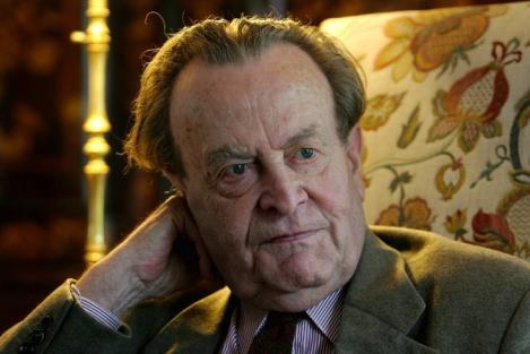
“Brideshead” Regurgitated

Well, the trailer for the film adaptation of Evelyn Waugh’s classic novel “Brideshead Revisited” is out, and the film is slated for a summer release here in the States. (Trailer | Official Site). Waugh fans can but lament that, whereas Waugh said the book was essentially about “the operation of divine grace”, the screenwriter of this adaptation openly admitted that the script “turns God into a villain”.
Rather than being bold and creating a genuine work of cinematic art to match the novel, they’ve decided to take the easy and conformist route and do a God-hating rompy flick. (Because we can’t have too many of those!). A shame, of course, but entirely predictable. Shall we at least have a look at the cast?
Cry God for Britain, Harry, and St. Aidan?
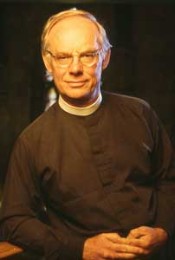
“St Aidan unites three of the countries by having lived there,” Dr. Bradley says, “and is, I believe, a better symbol for Britishness” [than the George, Andrew, and Patrick, the patrons of England, Scotland, and Ireland respectively].
“It’s like Billy Bragg says in his song ‘Take Down the Union Jack’ about Britain; ‘It’s not a proper country, it doesn’t have a patron saint’. Aidan was the sort of hybrid Briton that sums up the overlapping spiritual identities of Britain.
“He also makes a good patron saint of Britain because of his character. He was particularly humble and believed in talking directly to people. When he was given a horse by King Oswald of Northumbria, he immediately gave it away because he was worried that he would not be able to communicate properly.
“He was also not shy of reprimanding the mighty and powerful about their failings. He saw it as part of his job to remind secular rulers not to get above themselves. At a time when we are thinking about what makes Britishness, he had a sense of openness and diversity for his time that I think makes him a good candidate as the patron saint of Britain.”
Find out more in this article:
“Home-grown holy man” (The Independent, 23 April 2008)
On a somewhat similar note, here’s Aelianus (one of our favourite bloggers) writing on British Identity last September.
La principessa, non la senatrice

 Isn’t it a shame that the citizens of Rome & Lazio neglected to choose Princess Alessandra Borghese as their senator? Our favorite inhabitant of the Palazzo Borghese is a sound Catholic, is good friends with the Pope, and was seen from afar during our first pilgrimage to Rome; good enough reasons to get my vote. While the UDC won a respectable 36 seats in the population-based Chamber of Deputies (an acceptable loss of 3 seats since the last election), la Principessa was a candidate for the regionally-based Senate, in which the UDC won only 3 seats, a loss of 18 since the 2006 elections.
Isn’t it a shame that the citizens of Rome & Lazio neglected to choose Princess Alessandra Borghese as their senator? Our favorite inhabitant of the Palazzo Borghese is a sound Catholic, is good friends with the Pope, and was seen from afar during our first pilgrimage to Rome; good enough reasons to get my vote. While the UDC won a respectable 36 seats in the population-based Chamber of Deputies (an acceptable loss of 3 seats since the last election), la Principessa was a candidate for the regionally-based Senate, in which the UDC won only 3 seats, a loss of 18 since the 2006 elections.
Another young royal vied for a parliamentary seat in the recent Italian election, but you will have to wait until the next Norumbega for our little overview of the results.

John Zmirak is “The Church’s Comedian”
Note: This was just sent me by a mutual friend of Herr Zmirak and myself. At first thought it was a wry parody of a ZENIT article but, lo and behold, it is actually a real ZENIT article praising this loyal son of the Empire State (who proudly boasts of his descent from subjects of the Hapsburgs).
Stand-up Apologist
John Zmirak Called to Be Church’s Comedian
by Elizabeth Lev
VATICAN CITY, APRIL 23, 2008 (Zenit.org).- In his 1980 novel “The Name of the Rose,” Umberto Eco dedicated a lengthy erudite section to the question, “Did Jesus Laugh?” Reading the works of Catholic author John Zmirak, he probably laughs a lot.
John Zmirak, a Queens-born author, journalist and apologist, regaled students and adults alike last week in Rome during the launch of his new book “The Grand Inquisitor.”
I spoke to Zmirak about how he reconciled a rapier wit with an ironclad faith, and was fascinated to hear the story of how this prickly pear of piety sprouted in the heart of 1970s Queens.
While other adolescents challenged authority by flaunting curfews or smoking, Zmirak was a youthful rebel for God. During his sophomore year, his religion teachers at his local Catholic high school began teaching notions contrary to the faith. Not being particularly well formed, Zmirak absorbed the doubts and contradictions until one day he was told that the transubstantiation — the change of bread and wine into the body and blood of Christ — wasn’t real.
The 15-year-old student balked, remembering vividly his mother explaining that when the bells rang “the bread turns into God.” (This by the way, is a reminder of the centrality of the role of parents in the formation of children.)
Zmirak found a Catechism and read the Church’s teaching for himself. Outraged, the teenager began a letter-writing campaign to his local bishop, persevering in the face of indifference and even hostility. One can almost imagine Zmirak as an early Christian martyr, proclaiming his faith and poking fun at his persecutors even as he faced the lions in the arena.
Zmirak’s unique perspectives and fine mind won him a scholarship at Yale, where he faced the full gale of secular intelligentsia. But he soon realized that it wasn’t the finely reasoned arguments against the tenets of Catholicism that were weakening the faithful, but ridicule.
Zmirak has an unusual take on what undermined the faith of Catholics in America. “It wasn’t eroded by earnest atheists and intellectual attacks,” he states. “What broke down ordinary people was a thousand clever comedic skits.”
So George Carlin and Saturday Night Live’s Father Guido Sarducci are responsible for the rise of the “cafeteria Catholics?” Zmirak says yes. “If you get people laughing, whatever your message is, it slides in unnoticed under the door.”
And thus Zmirak found his vocation. He thought that if humor could be used against the Church, then it could be used for it.
Two of the author’s most popular books are “The Bad Catholic’s Guide to Good Living” and “The Bad Catholic’s Guide to Wine, Whiskey and Song.” Like handbooks for fraternity boys, these books dream up parties, games and drinking activities, all laced with good humor and anchored in Catholic belief.
The good-living guide is dedicated to the fine sense of humor of the Pope John Paul II. Zmirak points out that the Pope not only brought down the Iron Curtain, but also won hearts with his refreshing comedic moments. Even a generation raised on Seinfeld and Monty Python found him accessible.
His guide follows the liturgical calendar with hilarious takes on the individual feasts and recipes and party ideas to celebrate them. In the pages of his book, every day is a reason to make merry in the Catholic world.
The “Guide to Wine, Whiskey and Song” is the rarest of things — a successful sequel. From A to Z, Zmirak runs through the most well-stocked liquor cabinet imaginable, tracing every form of spirit and elixir back to its Christian origin. In the finest of traditions, he also provides drinking songs, the funniest being Monty Python’s “Philosopher Song” reworked to feature heretics.
Zmirak’s latest effort, “The Grand Inquisitor” is a different genre for him, a graphic novel. Dubbed the anti-“Angels and Demons,” the story is set during a conclave, involves kidnapped cardinals, but champions the cause of orthodoxy and fidelity to the magisterium.
“The Grand Inquisitor” features all the staples of a good noir thriller — dark, graphic design, striking portraits and flashes of razor sharp wit — but contrary to genre which invariably transmits an anti-Christian message, Zmirak’s story is rooted in love for the Church.
After several days with John Zmirak, it became clear that a deep faith and great intelligence provide ballast for what seems to be Christendom’s first stand-up comic. A refreshing reminder of how it takes all kinds to make the Catholic Church.
St. George
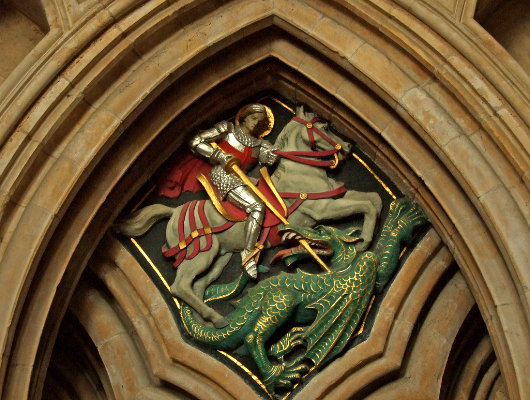
Today is St. George’s Day.
On this day in 303, St. George was killed; in 997, St. Adalbert of Prague died; in 1014, Brian Boru defeated the Vikings at Clontarf; in 1348, the Order of the Garter was founded by Edward III; in 1564,William Shakespeare was born; in 1616, both Miguel Cervantes and William Shakespeare died; in 1635, the Boston Latin School was founded; in 1661, Charles II was crowned at Westminster; in 1725, St. Gerard Majella was born; in 1775, J.M.W. Turner was born; and in 1794, Guillaume-Chrétien de Lamoignon de Malesherbes was guillotined for his defense of King Louis XVI before the Convention.
There is hope for America
A vignette from the Holy Father’s recent youth rally in Yonkers:
From For God, For Country, and For Yale, via Benedicite, Pater reverende.
Our Lady of Esperanza
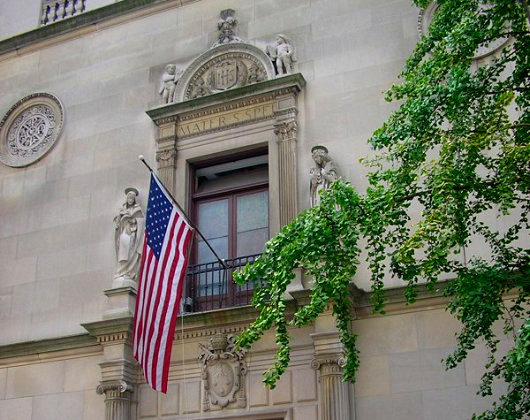
The Church of Our Lady of Esperanza, 156th Street & Broadway. The Church was built by Archer Huntington at the urging of Doña Manuela de Laverrerie de Barril and designed by Huntington’s brother Charles. The sanctuary lamp was a gift from King Alfonso XIII of Spain. The present façade dates from 1924, when the Church was expanded under the direction of Lawrence G. White, the son of Stanford White of McKim Mead & White and himself a partner in his father’s firm.
A Miracle from Blessed Charles
Vatican to Review Case of Inexplicable Healing of Florida Woman
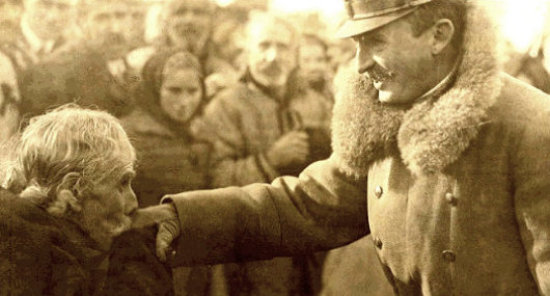
The seemingly inexplicable healing of a Baptist woman from Florida may provide the miracle necessary for the canonization of Emperor Charles of Austria. The woman, in her mid-50s, suffered from breast cancer and was bedridden after the cancer had spread to her liver and bones. Despite treatment and hospitalization, doctors diagnosed her case as terminal. But after intercessory prayers to the Emperor Charles, the woman (who wishes to maintain her privacy and remain unnamed) was completely healed.
The story begins when Joseph and Paula Melançon, a married couple from Baton Rouge, Louisiana and friends of the healed woman, travelled to Austria, where they met Archduke Karl Peter, son of Archduke Rudolf, and grandson of the holy Emperor Charles. The Archduke invited the couple to his grandfather’s beatification in Rome in 2004. Mrs. Melançon gave the novena to Blessed Charles to her sister-in-law, Vanessa Lynn O’Neill of Atlanta.
“I knew that when I got that novena — I knew that my mother’s best friend was sick — I just knew at that moment that it was something I was going to do,” Mrs. O’Neill told the Florida Catholic in an interview. “And that is how I got started, I just prayed the novena.”
The woman’s recovery was investigated by an official church tribunal consisting of Father Fernando Gil (judicial vicar of the Diocese of Orlando), Father Gregory Parkes (chancellor of canonical affairs of the Diocese), Father Larry Lossing, diocesan notary Delma Santiago, as well as an unnamed medical doctor. The tribunal examined the evidence at hand and invited the participation of medical experts, who could find no earthly explanation for the woman’s recovery.
“Other alleged miracles attributed to the intercession of Blessed Karl I are currently being investigated in different places in the world,” Fr. Gil said.
The sixteen-month investigation has now concluded, and the conclusions have been signed by the participants, sealed, and placed in special boxes which are then themselves tied, sealed with wax, and sent to the Congregation for the Causes of the Saints in Rome via diplomatic pouch. The Congregation will examine the case further and then present its findings to Pope Benedict XVI, who will decided if a miracle has taken place. If the Pope is convinced by the evidence, then the Emperor’s canonization can proceed.
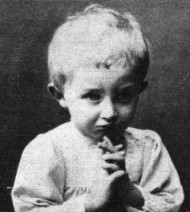 The future emperor, 1889 |
Blessed Charles’s reign as Emperor of Austria and Apostolic King of Hungary began in November 1916 during the First World War. The Emperor realized the heavy toll the Christian countries were suffering and almost immediately began to make peace manouevers. The insane obstinacy of both his German allies and the enemy alliance of France, Great Britain, and the United States, however, meant that Charles’s multiple attempts to negotiate a mutually-acceptable end to the war were not even considered.
After the war, President Woodrow Wilson insisted on dismantling the Austro-Hungarian Empire and the Emperor was forced into exile, first in Switzerland and finally, after two attempts to regain his Hungarian throne, on the Portuguese island of Madeira. Charles had always been particularly devout, and his devotion to God only increased when he caught a severe case of pneumonia on Madeira. He died from the illness in April 1922.
The English writer Herbert Vivian wrote that Charles was “a great leader, a prince of peace, who wanted to save the world from a year of war; a statesman with ideas to save his people from the complicated problems of his empire; a king who loved his people, a fearless man, a noble soul, distinguished, a saint from whose grave blessings come.”
Even Anatole France, the radical French intellectual and novelist, wrote “Emperor Karl is the only decent man to come out of the war in a leadership position, yet he was a saint and no one listened to him. He sincerely wanted peace, and therefore was despised by the whole world. It was a wonderful chance that was lost.”
Recent history has come to fulfil the expectations of Pope St. Pius X, who received Charles when the Austrian was a young archduke and not in direct line to succeed to the throne, saying “I bless Archduke Charles, who will be the future Emperor of Austria and will help lead his countries and peoples to great honor and many blessings–but this will not become obvious until after his death.”
Mourning in Vienna
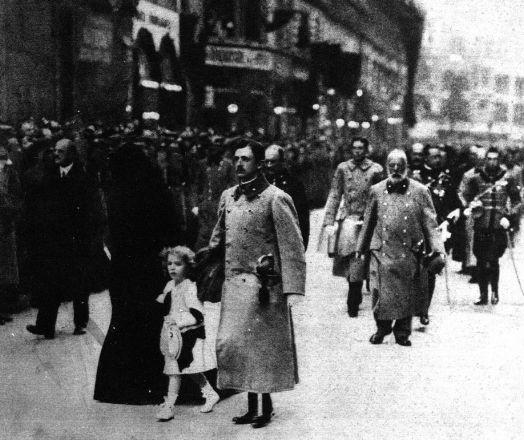
The Blessed Emperor Charles at the funeral of the late Emperor Franz Joseph, the saint’s great uncle, in November 1916. Between the Blessed Charles and his Empress, Zita of Bourbon-Parma, is Crown Prince Otto. Otto lives today, and is the head of the Hapsburg family.
Grant us the grace, with his intercession, to follow his example and serve the true cause of peace, which we find in the faithful fulfillment of Your holy will. We ask this through Jesus Christ our Lord, who lives and reigns with You and the Holy Spirit, one God, forever and ever.
Amen.
Category: Monarchy | Previously: Our Holy Emperor
Upcoming Events
April 26, 2008 (Saturday)
The Birthday of Rome: 753 B.C. – 2003 A.D.
The Roman Forum Spring Ball
7:00pm – midnight
Catholic Center at New York University
238 Thompson Street
(between Washington Square South & West 3rd Street)
A, B, C, D, E, F, V trains to West 4th St.; R to 8th St.; 6 to Bleecker St.
7-Piece Rich Siegel Ballroom Orchestra
Grand Imperial Buffet and Dessert
Well Done Roma! Festivities and Spontaneous Outburst of Joy, 10:00 pm.
According to tradition, Romulus took up his trusty plow and marked out a sulcus around “Shepherds’ Hill” on the twelfth day before the Kalends of May, i.e., a.d. XII Kal. Mai-a date which, give or take eleven or twelve days, roughly corresponds to what we call April 21st. Conveniently, the date was also the festival of the shepherd goddess Pales (the Parilia), in whose honor the hill, chosen by Romulus, had been named the Palatine.
When the festival was adopted by city dwellers, the date was set to coincide with the date of the traditional founding of Rome. Each area of Rome set up festivities, much like a block party. Bonfires were set onto which offerings were thrown. The event concluded with a bountiful feast set up out of doors. Catholics can also commemorate the day due to Rome’s Christian meaning.
Two songs will be sung at the 10:00 P.M. festivities: The papal hymn, Roma Immortale, and Rome’s Birthday Song, the latter to the tune of Oklahoma, with lyrics by Judy Hallet.
For further information please contact the Roman Forum (dvhinstitute@aol.com or call 212-645-2971).
COST
$50 per person
(Children 16 and under, free)
Reserve by April 21
ATTIRE
Suit and tie or dinner jacket for the men
Checks payable to:
The Roman Forum
11 Carmine Street, 2C
New York, NY, 10014
May 3, 2008 (Saturday)
The Glass of Absinthe and the Rules of the Game
Part two of the Roman Forum’s Modern Image & Catholic Truth series
9:00am – 5:00pm
Catholic Center at New York University
238 Thompson Street
(between Washington Square South & West 3rd Street)
A, B, C, D, E, F, V trains to West 4th St.; R to 8th St.; 6 to Bleecker St.
Modern man has a positive image of himself that has been shaped and very effectively propagandized since the time of the Renaissance. The Roman Forum’s Modern Image and Catholic Truth series explores the gap between this image and the true predicament in which both the individual and contemporary society as a whole now find themselves imprisoned.
Part Two: The Glass of Absinthe and the Rules of the Game
This year’s series began in November with a conference called The Sleep of Reason, designed to underline the fact that modern naturalism ends with the destruction of the rational in man, achieved in a variety of different ways depending upon the particular approaches of the thinkers and activists concerned.
The Glass of Absinthe and The Rules of the Game were originally intended to be two separate conferences—the first focusing on the destructive aspects of the naturalist separation of the individual from society and his own past; the second on the intellectual, artistic, psychological and socio-political obstacles placed in the path of identification of the disease that afflicts us. These have now been combined into one session— the last Roman Forum event in the United States in the 2007-2008 academic year.
9:00 – 10:00 am
Registration and coffee hour
10:00 – 11:00 am
The Glass of Absinthe and the Rules of the Game
Dr. John C. Rao
St. John’s University, Director of Roman Forum
11:15 am – 12:15 pm
The Empire of Nothingness
Christopher A. Ferrara, Esq.
President, American Catholic Lawyers Association
12:15 – 1:45 pm
Luncheon
1:45 – 2:45 pm
Citycraft and Soulcraft
Dino Marcantonio, AIA
Architect and Lecturer at the Yale School of Architecture
3:00 – 4:00 pm
Reason Gone Mad
James Kalb, Esq.
International Catholic lecturer and writer; author of The Tyranny of Liberalism: Understanding and Overcoming Administered Freedom, Inquisitorial Tolerance, and Equality by Command (Fall, 2008, ISI Books).
4:00 – 5:00 pm
General Discussion
For further information please contact the Roman Forum (dvhinstitute@aol.com or call 212-645-2971).
COST
$35: Reserve by April 28, entrance & luncheon
$10: Pay at the door, entrance alone
Checks payable to:
The Roman Forum
11 Carmine Street, 2C
New York, NY, 10014
Fra’ Matthew Festing
Northumbrian, Art Expert, Veteran of the Grenadier Guards is Seventy-Ninth Prince & Grand Master of the Order of Malta
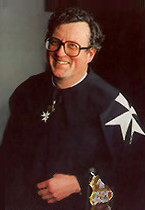 FRA’ MATTHEW FESTING, the Grand Prior of England, was today elected Prince and Grand Master of the Order of Malta. The new grand master was chosen in a secret ballot by the Complete Council of State. After receiving the approval of the Pope, His Most Eminent Highness swore the Oath before the council and the Cardinal Patronus of the Order, Cardinal Pio Laghi. Fifty-eight years old, Fra’ Matthew was, up to this point, an art expert for the auction house Sotheby’s. The Prince is the son of Field Marshal Sir Francis Festing who, as Chief of the Imperial General Staff, was the effective head of the British Army. Sir Francis converted to Catholicism and married a member of the Riddells of Swinburne Castle, a prominent recusant family. Through his mother, Fra’ Matthew is descended from the Blessed Sir Adrian Fortescue, an English Knight of Malta who was martyred for the Faith in 1539. The grand master’s brother Andrew Festing, RP is a noted portraitist.
FRA’ MATTHEW FESTING, the Grand Prior of England, was today elected Prince and Grand Master of the Order of Malta. The new grand master was chosen in a secret ballot by the Complete Council of State. After receiving the approval of the Pope, His Most Eminent Highness swore the Oath before the council and the Cardinal Patronus of the Order, Cardinal Pio Laghi. Fifty-eight years old, Fra’ Matthew was, up to this point, an art expert for the auction house Sotheby’s. The Prince is the son of Field Marshal Sir Francis Festing who, as Chief of the Imperial General Staff, was the effective head of the British Army. Sir Francis converted to Catholicism and married a member of the Riddells of Swinburne Castle, a prominent recusant family. Through his mother, Fra’ Matthew is descended from the Blessed Sir Adrian Fortescue, an English Knight of Malta who was martyred for the Faith in 1539. The grand master’s brother Andrew Festing, RP is a noted portraitist.
As a child, Fra’ Matthew lived in Egypt and Singapore where his father held army postings, and was educated at Ampleforth Abbey in Yorkshire and St. John’s College, Cambridge. Passing out from Sandhurst, he was commissioned an officer in the Grenadier Guards, Britain’s most senior infantry regiment. (The Coldstream Guards are actually older, but their seniority was reduced for backing Cromwell in the Civil War). Currently holding the rank of Colonel in the Territorial Army, Fra’ Matthew served the Queen as Deputy Lieutenant for Northumberland for many years, and was appointed OBE.
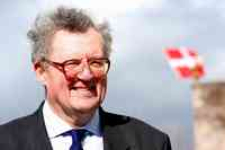 “The new Grand Master affirms his resolve to continue the great work carried out by his predecessor,” an official statement from the Order of Malta said, noting Fra’ Matthew’s “wide range of experience in Order affairs”. Having joined the Order of Malta in 1977, Fra’ Matthew took solemn vows in 1991 and was appointed Grand Prior of England in 1993, when the Grand Priory was resurrected after 450 years in abeyance. In that post he led humanitarian missions to Kosovo, central Serbia, and Croatia, and has attended the annual British pilgrimage to Lourdes with the handicapped and the disabled. “As well as his passion for the decorative arts,” the official announcement continued, “and for history, for which his encyclopaedic knowledge of the history of the Order is legendary, as is his very British sense of humour, Fra’ Matthew spends any free time possible in his beloved Northumberland countryside.”
“The new Grand Master affirms his resolve to continue the great work carried out by his predecessor,” an official statement from the Order of Malta said, noting Fra’ Matthew’s “wide range of experience in Order affairs”. Having joined the Order of Malta in 1977, Fra’ Matthew took solemn vows in 1991 and was appointed Grand Prior of England in 1993, when the Grand Priory was resurrected after 450 years in abeyance. In that post he led humanitarian missions to Kosovo, central Serbia, and Croatia, and has attended the annual British pilgrimage to Lourdes with the handicapped and the disabled. “As well as his passion for the decorative arts,” the official announcement continued, “and for history, for which his encyclopaedic knowledge of the history of the Order is legendary, as is his very British sense of humour, Fra’ Matthew spends any free time possible in his beloved Northumberland countryside.”
This election is a most welcome one, and I would go so far as to say the councillors have chosen very wisely. It is an immense honour for we English-speaking Catholics that yet another Grand Master has been chosen from our ranks. But of course Fra’ Matthew was not chosen for being an Anglophone but rather for being Matthew Festing. Like Pope Benedict, he is a friend of the old rite of the Mass, and he was among the many prominent British Catholics (whose number included James MacMillan, Michael Ancram, Damian Thompson, Jamie Bogle, and others) who signed the ‘Appeal from the British Isles’ to Pope Benedict imploring a liberalization of the restrictions on the Tridentine rite (duly granted by the Holy Father in his motu proprio Summorum Pontificum of July 2007).
While certainly an ardent respecter of tradition, Fra’ Matthew is by no means a stuffy man but rather, as the Order’s official statement noted, is known for his sense of humour. On the only occasion on which I met Fra’ Matthew, I introduced him to Mrs. Burke (then Fraulein Hesser). Upon discovering that Abby hailed from the great state of California, Fra’ Matthew regaled us with his memories of driving from Denver all the way to the Pacific coast of California. Upon reaching the great ocean (the Grand Prior very enthusiastically informed us), he took off his shoes, rolled up his trousers and went straight in!
The Order of Malta has been remarkable in that it has had no qualms about modernization while at the same time unabashedly keeping to its ancient traditions. In this, it is a shining beacon in a world which too often and too easily disregards the time-tested ways of our ancestors. The very prompt election of Fra’ Matthew shows that the Order is of a firm mind and on a sound footing. We have no doubt that Fra’ Matthew will continue the great centuries-long tradition of the Order of Malta: to defend the Faith, to serve the Poor.
to
FRATER
Matthew Festing
Prince and Grand Master
of the Sovereign Military and Hospitaller Order of St. John
of Jerusalem of Rhodes and of Malta
Most Humble Guardian of the Poor of Jesus Christ
Category: Order of Malta
Uncle Sam Does Osama’s Dirty Work
U.S.-backed Terrorists Complete Their Takeover of Serbian Province
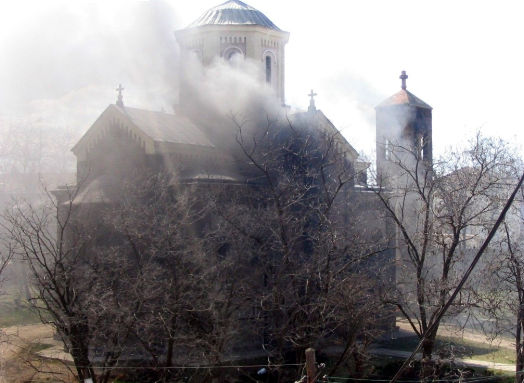
ANOTHER STRIKE AGAINST Christendom’s fragile frontiers: the assembly of the UN-administered Serbian province of Kosovo has unilaterally and illegally declared independence. The United States government, which is bound by its own law to deny recognition to the putative country, nonetheless swiftly extended official recognition to the Kosovar assembly’s declaration. The U.S., which claims to currently be fighting a “Global War on Terror”, has backed the Albanian Muslim UÇK terror group that has run Kosovo for nearly a decade now, and continually encouraged it because Washington views any defeat for the Serbs as by extension a defeat for a Russians; and in Washington’s point-of-view, no matter how irrelevant it is to the actual safety and well-being of we Americans, any defeat for the Russians is a victory for Washington — or “the United States”, as the clique of insipid upper-middle-class bureaucrats supported by the taxes of hard-working Americans likes to style its rule. (Naturally, a complete inversion of this attitude — in which any defeat for America is regarded as a victory for Russia — now reigns in Moscow. After a decade of Washington kicking Mother Russia while she was down, the Ruskies finally took the hint and so we once more have nuclear missiles aimed at our shores.) (more…)
Fra’ Andrew Willoughby Ninian Bertie
Prince and Grand Master of the Sovereign Military Order of Malta, Guardian of the Poor of Jesus Christ, Veteran of the Scots Guards, Humanitarian, Teacher for 23 Years, Cultivator of Oranges
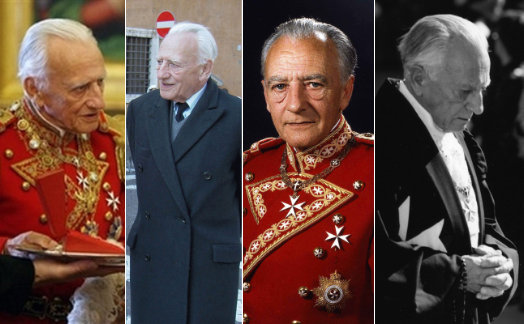
THE DEATH OF Fra’ Andrew Bertie brings to a close one of the most successful reigns of any Grand Master of the Order of Malta. Fra’ Andrew was admitted to the Order in 1956, took solemn religious vows in 1981, and was elected head of the Order in 1988. His reign as Prince and Grand Master witnessed continued modernization, as the oldest chivalric order in the world adapted to contemporary needs of humanitarian aid and the relief of suffering around the globe. Despite the continual adaptation and modernization, the Order refused to unnecessarily disregard tradition, and has continued to recall the primacy of the spiritual over the temporal. Fra’ Andrew was the first Grand Master of the Order called forth from the English-speaking world since Hugh Revel in 1258, and he oversaw the commemoration of the 900th anniversary of the Order in 1999. (more…)
Fra’ Andrew Bertie, 1929-2008
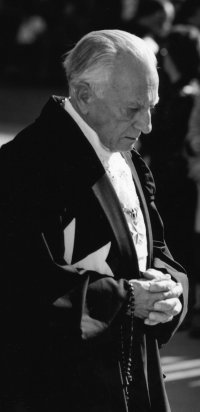 MAGISTRAL PALACE, ROME, 8-FEB-2008 — The death is announced of His Most Eminent Highness the 78th Grand Master of the Sovereign Military Hospitaller Order of St. John of Jerusalem of Rhodes and Malta, Fra’ Andrew Willoughby Ninian Bertie, in Rome on 7 February 2008. The Grand Commander of the Order of Malta, Baillif Frà Giacomo dalla Torre del Tempio di Sanguinetto, has been sworn in as Lieutenant ad interim of the Order, and remains acting head of the Sovereign Order until a new Grand Master is elected.
MAGISTRAL PALACE, ROME, 8-FEB-2008 — The death is announced of His Most Eminent Highness the 78th Grand Master of the Sovereign Military Hospitaller Order of St. John of Jerusalem of Rhodes and Malta, Fra’ Andrew Willoughby Ninian Bertie, in Rome on 7 February 2008. The Grand Commander of the Order of Malta, Baillif Frà Giacomo dalla Torre del Tempio di Sanguinetto, has been sworn in as Lieutenant ad interim of the Order, and remains acting head of the Sovereign Order until a new Grand Master is elected.
Andrew Willoughby Ninian Bertie was the first Englishman to be elected to the post of Grand Master in the Order’s 900-year history. Born 15 May 1929, he was educated at Ampleforth College, Christ Church Oxford and the School of Oriental and African Studies, University of London. After military service in the Scots Guards, he worked as a financial journalist in the City of London, before taking up the senior post in Modern Languages (French and Spanish) at Worth School, Sussex. Admitted to the Order in 1956, he took solemn religious vows in 1981 and served on the Sovereign Council (the government of the Order) for the following seven years before being elected Grand Master on 8th April 1988.
The Victory That Conquers
the World is Our Faith
BACK IN SCOTLAND, there is a cinema I once attended often that served from its snack bar the most watered-down soda in the world. It was still recognizable as cola of some kind, but was watered down to such an extent that, while one wanted a cool refreshing Coke, that was not what was on offer. Consequently, few people took advantage of it. And so it is with the Faith (no, really!). In the past half-century there have been many who have sought to water down Christianity. Sometimes inauspicious clerics (and others) hoped that if we just dumped or ignored this or that part of Christ’s teaching we would be able to win so many more souls for Christ. Sometimes it was an evil attempt to sow the seeds of doubt among the faithful. Sometimes it was an hubristic attempt by the created to overcome the Creator.
The watering down of the Faith, nonetheless, has never produced a more fruitful and more holy church. Everywhere it has been attempted, the result has been confusion and dissension, instead of the concord and unity which God brings to His people. Christ himself taught that “not one iota” — to put it in modern terms, not one cell, not one atom — of God’s teaching would be changed (Mt 5:18).
It is heartening, then, though not at all surprising, to see throughout much of the world a certain reinvigoration in the Church, under the guidance of our Holy Father, Pope Benedict XVI. Hearts once thought to be cold as stone have warmed, and fields which once produced only chaff have yielded wheat. From surprising quarters, we hear more and more good news, and the root cause is the unashamed and unabashed proclamation of the Gospel. Pope Benedict is not interested in scolding sinners, but rather in encouraging their repentance and bringing them closer to our Divine Saviour. First and foremost is our love of God, a love which grows stronger and deeper when we live in accordance with that love. Then there is our natural love for one another, which results in our zeal that our friends, family and loved ones should share in that wonderful love of God.
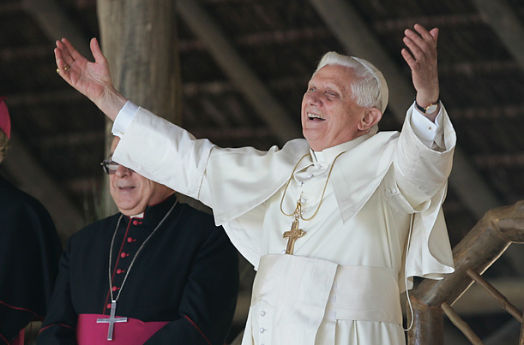
John Allen, the veteran Rome correspondent, has termed this Benedict’s “affirmative orthodoxy”:
Wherever this affirmative orthodoxy has been maintained, or reintroduced, it has borne fruit.
Christ the King in Chicago
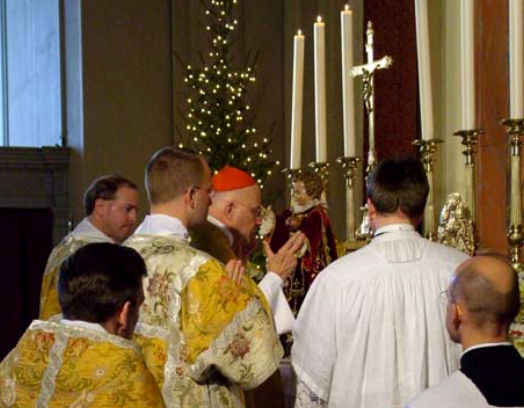
Francis Cardinal George, the Archbishop of Chicago, has participated in the coronation and enthronement of a statue of the Holy Child at the new Shrine of Christ the King in that city. The church, formerly dedicated to St. Gelasius and St. Clara, was entrusted to the Institute of Christ the King Sovereign Priest, a group of priests dedicated to offering the traditional Latin Mass. The church had been shut down many years ago and the Institute received it in a dilapidated condition, immediately embarking upon essential repairs for the physical integrity of the building. While the renovations are by no means complete, a fine temporary trompe l’oeil reredos has been erected, and Cardinal George was invited to crown the centuries-old statue of the Infant Jesus which the Institute purchased for the Shrine.
Search
Instagram: @andcusack
Click here for my Instagram photos.Most Recent Posts
- A Christmas Gift from the Governor December 24, 2024
- Oude Kerk, Amsterdam December 24, 2024
- Gellner’s Prague December 19, 2024
- Monsieur Bayrou December 18, 2024
- Dempsey Heiner, Art Critic December 17, 2024
Most Recent Comments
Book Wishlist
Monthly Archives
Categories

